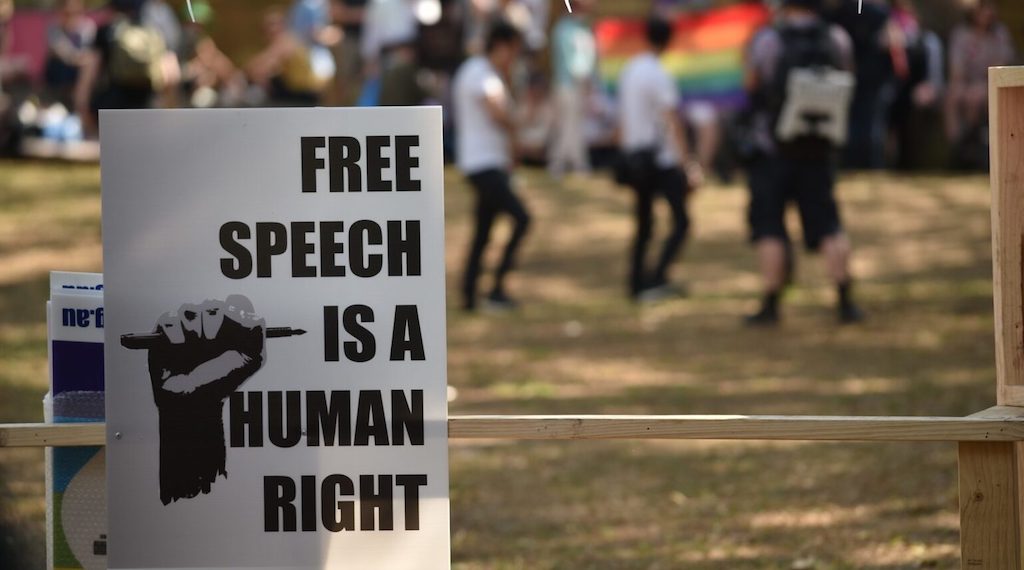The confounding question of how to protect free speech at a time when social media allows the breakneck, worldwide spread of potentially harmful statements had a watershed moment recently when a US district judge ruled that the Biden administration could no longer contact tech companies regarding content removal.
Judge Terry Doughty sided with plaintiffs arguing that actions “with the purpose of urging, encouraging, pressuring, or inducing in any manner the removal, deletion, suppression, or reduction of content containing protected free speech” violated the First Amendment. The allegations, “if true, represent the most massive attack against free speech in United States history,” he added.
The defendant’s counterargument, that the government never demanded removal, but rather rang the alarm about content it deemed dangerous, was convincing enough for the Fifth Circuit Court of Appeals to place a temporary hold on the injunction, but this highly politicized debate isn’t going anywhere, no matter the case’s final outcome.
This argument hinges on the question of coercion. Could the government ethically demand content removal by private companies? The Biden administration insists it could not, but even professional free speech advocates who oppose Judge Doughty’s ruling concede that there’s a very close “collaboration” between federal agencies and social media companies.
Such a well-established collaboration gives me pause. In fact, the absence of coercion resolves nothing as it leaves private companies the final arbiters of what is and isn’t harmful speech. This would be a problem for even the smallest companies, but could carry catastrophic implications for a company like Facebook with nearly 3 billion users.
Would the government only target those giants? It’s hard to imagine agencies monitoring the countless smaller platforms peddling damaging content, bringing to question the efficacy and fair application of these collaborations.
Then there’s the thorny matter of when alarm bells are rung. Republicans claim the Biden White House has unfairly targeted content offensive to liberal-leaning social media users. The pandemic catalyzed much of the ire over this matter, with the spread of anti-vaccine information frequently being flagged by the government for removal.
While I agree that such content could cause grave harm, the precedent makes for a slippery slope. Think back to the furor, mostly from the left, around early claims that a lab leak caused the outbreak. This stance subsequently gained traction, despite the Chinese Communist Party’s best efforts to quash it. If content promoting the theory had been silenced, the origins of the pandemic might be even murkier than they are now.
My concerns about infringements on the First Amendment are mixed with worries about the effect of rulings like Doughty’s on the fight against misinformation.
Institutes researching misinformation campaigns have spoken of a silencing effect on their important work should federal agencies no longer be allowed to work with them. (The ruling does allow for government flagging of material related to crime, national security and foreign influence on US elections).
These think tanks have already seen a dramatic surge in subpoenas by Republican lawmakers, and warn that if the government no longer contacts them, it might discourage promising young researchers from joining the field.
Also distressing is the adherence to the US’s Wild West approach to tech regulation that the ruling signals. I’ve written about my dismay that America has failed to follow the lead of governments in Australia and throughout Europe in diminishing Big Tech’s unfair dominance in distributing news content it doesn’t produce. But that sort of oversight doesn’t pose a direct threat to the First Amendment.
If the government wishes to continue advising tech companies on harmful content, it should consider arguing that certain topics, like public health, join the ranks of exempted topics. And it must be more transparent about its collaborations with social media platforms. The process until now has been too opaque, justifying the fears of free speech repression, which America cannot abide.

